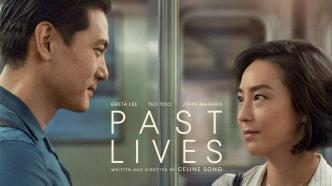
Time, distance and regret, "Past Lives" is a story about love. The hero and heroine who had love at the age of twelve slowly lost it in their lives of twelve years and twelve years.
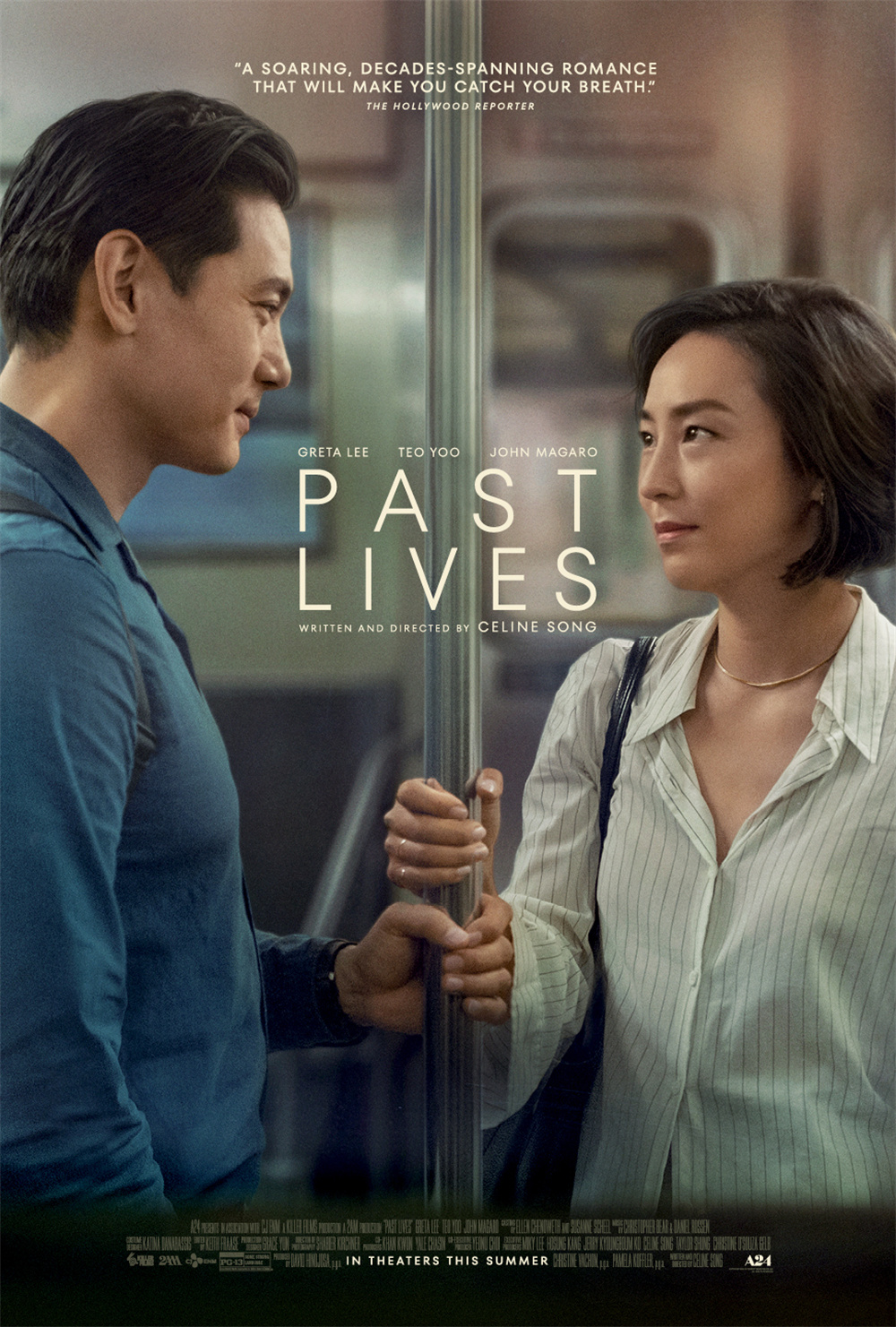
"Once Upon a Time" poster
Love is a living thing. Sometimes it lies dormant and sleeps, sometimes it wakes up and explores its claws, and finally becomes a memorial. Commemorate those things lost on the way to pursue your ideals in life.
Most people’s losses are piecemeal, like a peeling wall, one piece falls off today, and another piece falls off tomorrow. The process is inconspicuous. It is not until the wall is mottled and black holes are eroded that they realize the passage of time. Nora (Greta Lee) and Hae Sung (Liu Taiwu) wanted to get married when they were 12 years old. On the slopes after school, love deepened day after day. When Nora's family immigrated, it reached maturity and exuded the fragrant fragrance of flowers, and then was suddenly picked. The two lost contact and grew up as teenagers. When they were twenty-four, Hae Sung was in Seoul and Nora was in New York.
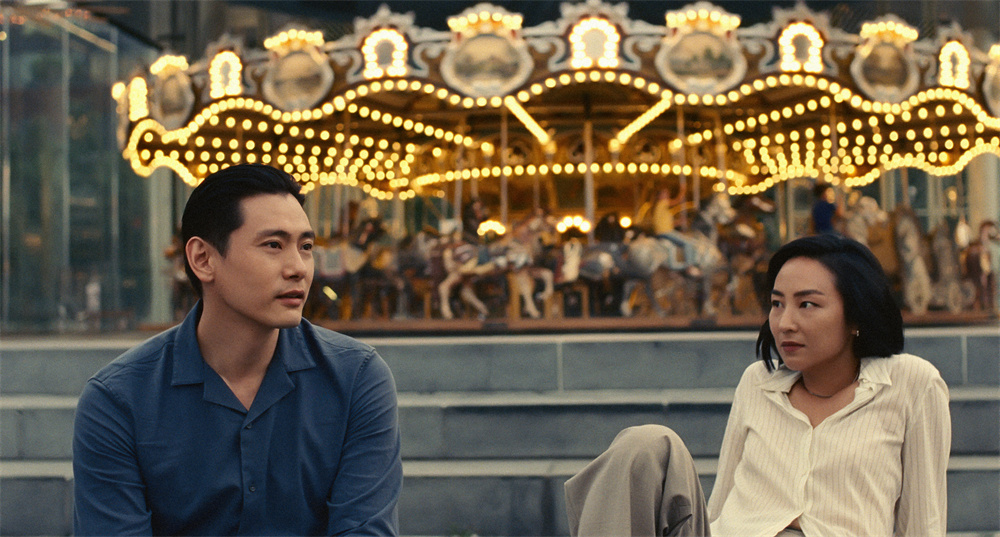
"Past Life" stills
Because it was a beautiful flower, and the feeling of losing it was very complete for Nora and Hae Sung. Unlike most of us, we had many childhood friends. One by one they disappeared on the road, new friends naturally replacing the old ones, with no particular affection for anyone. In the film, the scattered petals are glued together into a crystal clear story. The long stream of loss becomes a concrete object.
Nora left Hae Sung and her hometown, Hae Sung lost the first person she fell in love with, and they became the essence of all that was lost in each other. In this love story, all the details are vivid and there are no defects caused by blurred memory. What happened when the paths of Nora and Hae Sung rarely crossed over the course of three twelve years turned into a movie, how enviable.
They have vague farewells and bright memories when they were 12 years old, anxiety and anticipation when they reconnected through the Internet when they were 24 years old, and happy hugs, smiles and tears when they met at 36 years old, and a serious farewell again.

"Past Life" stills
Time jumps lightly on the timeline, giving the film a soft touch and making it close to the real experience of memories. Memories are made of details. What details will become memories and what will be forgotten are determined by a mysterious mechanism that is independent of human will. Perhaps an important detail has been forgotten. What I remember, what appeared in the movie, was an ordinary occurrence at that time.
Nora and Hae Sung's first two farewells were not solemn. A goodbye after school, a "chat next time" before hanging up the phone, there is no warning before entering the long time of losing contact, showing the characteristics of youth.
Because we are young, life is jumping forward, with broken threads and new connections happening at the same time, and full of possibilities along the way. They are as soft and full as two drops of water. I don't know what will be remembered and what will be forgotten. The film keeps breathing easily and unconsciously overlaps with the audience's personal experiences.
Even if the immigration color in the character's background is removed, it will not affect the resonance. Because even if Nora had not immigrated to Canada, they would have been separated by life if they had grown up normally.
"He is very Korean, not the kind of Korea that Korean Americans have, but the Korea of Koreans." Nora escaped from the repressive society and headed for a world with more opportunities. But "Koreanness" without resorting to language is always a part of her. She misses this part, but it's impossible to turn around just because she misses it. Even if she stays in Korea, Nora will desperately want to get rid of this "Koreanness".
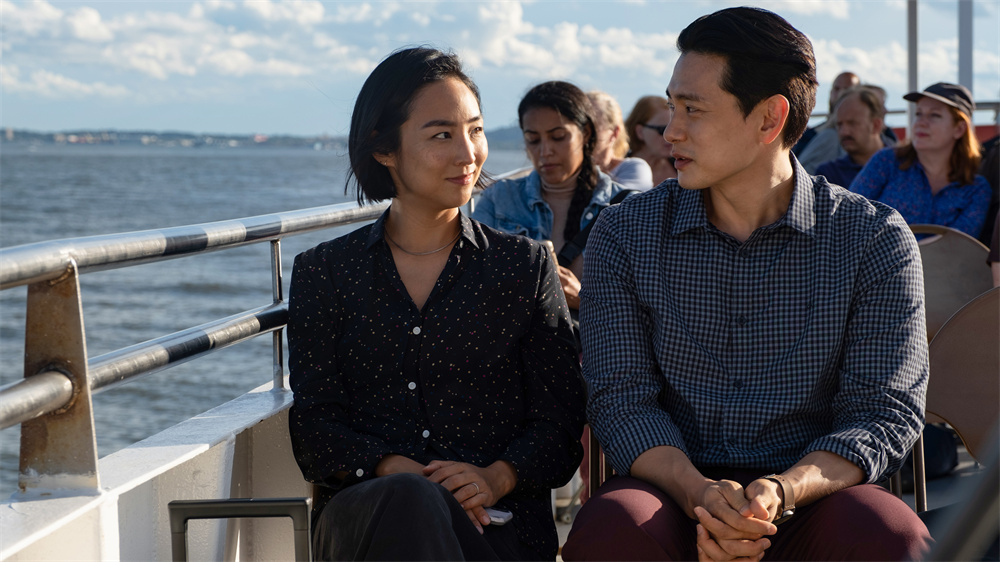
"Past Life" stills
Nora and Hae Sung's love is wrapped in an extremely realistic texture of life. There's a shot of Hae Sung on the subway next to a tired older office worker, lethargic. Hae Sung, who was outstanding since childhood, told Nora that now he is a very ordinary person, doing ordinary jobs, earning ordinary wages, and being so ordinary that he dare not get married.
Nora, an immigrant who chased her dream twice, settled in New York, which is wider than Seoul. Hae Sung knew that she wanted to win the Nobel when she was a child and the Pulitzer when she was 24. At 36 years old, I asked her what award she wanted to win? Nora doesn't like to talk about it, so I'll talk about it after asking, Tony.
Nora works as a playwright in New York. Her home on the East Side is similar to Carrie's home in "Sex and the City" (Sex and the City), facing the street, small, and the windows are lit with dreamy light. Late at night, Nora's conversation with her husband Arthur (played by John Magaro) cast doubts on her dream. Arhur looks back on his relationship with Nora and wonders if he has given Nora a bigger world. "Have you ever thought that the end of your family's immigrant dream is me?"
No matter where you are, Seoul or New York, the pressure of life and the pressure of stopping your dreams are there. Arthur is a tolerant and understanding husband and a graceful Jewish writer. He listened quietly to Nora and Hae Sung talking in Korean at the bar on the eve of farewell, accepting that his wife had a past that he could not participate in.
Arhur knew that Nora's dreams must be in her mother tongue, because her dream words were all in Korean. Dreams have such a characteristic that reality is often absent in dreams, the clock is turned back to the past, and dead people and people from the past move about in the dream as if nothing had happened, and the owner of the dream does not notice the difference at all. This characteristic of dreams makes people feel bored when they wake up, just like this love story, which is boring but hidden needles.
The precocious and patient oriental people abandoned romance after entering modern times. There's no way "My Life" is The Bridges of Madison County (1995). As a viewer, I never thought about the possibility of Nora and Hae Sung being together. Facing her uneasy husband, Nora comforted him, "Don't you understand me yet? Will I give up everything here and elope to South Korea with him?"
Seeing this, he smiled, and maybe secretly breathed a sigh of relief. Because like them, we are all modern people who know how to weigh things, understand ourselves, and have clear ideas. Nora and Hae Sung were already like this when they were in their twenties. When Internet phone calls make two people feel attached, no one buys a plane ticket to fly to each other, but gently puts it down and turns to a more practical love. Rational people appear indifferent and have no chance of romance, but they have not lost their feelings.
The gears of reality are turning step by step. Living at that time, I don’t feel anything. Nora and Hae Sung’s story is like a microwave on the surface of the water. When the wind blew over, they temporarily left the gear and verified the rationality of the gear from another angle. They also saw with their own eyes that the microwave was fleeting.
This movie is a kind of compensation. It is common to lose friends or lovers as you grow up. Even if I want to express my feelings, I can’t shed tears. Love stories in movies are more condensed and more honest than ordinary people's. The level of sincerity is no less than any first love in the world.
What it lacks in passion and romance, it makes up for in the eternal comfort of Eastern thought. "In-Yun", karma, is expanded to be a karma meeting between people. As small as rubbing shoulders, as big as a promise of life and death, they can all be put into this bag and treated in an oriental way. Regardless of religious beliefs or not, East Asians believe in reincarnation to some extent. The invisible and intangible fate becomes an entity that can be accumulated or reduced in the reincarnation of one life, and becomes reliable.
With this layer of belief as the background, the joy of gain and the pain of loss are alleviated to the extent that you can carry on with your life. Smile when you say goodbye. As time goes by, the road of life becomes narrower and narrower, and the pressure is heavy, but you can also bear it with a smile. Maybe, the lack of fate in this life will bring about a longer gathering in the next life.
The movie opens with three people sitting in a bar at 4 a.m., guessing from the sidelines about the relationship between the two Asians and an American. Despite Arthur's presence, this quiet love story has always been a secret between Nora and Hae Sung, and no one else can get into the core of the secret. There is the love of childhood with no distractions, so little consideration, and so much confidence in the future, it is almost doomed to fail.
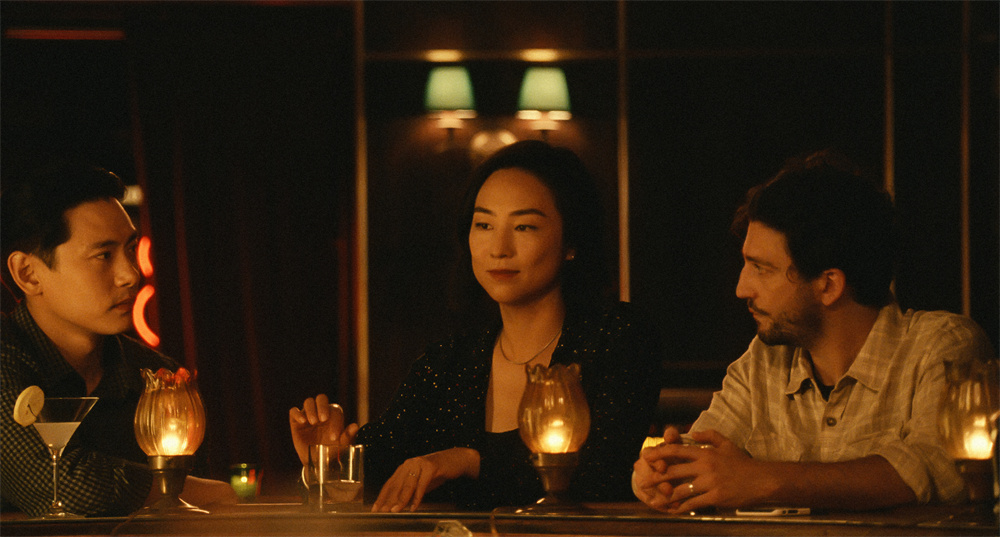
"Past Life" stills
Nora, who embraced Hae Sung when they met, stood still when they parted, and was hugged by Hae Sung. Under the street lights in the early morning, Greta Lee's face underwent a magical transformation. Her face alternated between that of a girl and that of an old woman, crying and laughing. Hae Sung, who has a serious expression typical of Japanese or Korean men, makes people sad.
Sadness is one of the few souvenirs of love, and it is kept together with secrets for a long time. The things in "A Past Life" are indeed very common, so common that some people feel that they are not worthy of being made into a movie. It is also because they are ordinary that they are so real that they are touching without being profound.
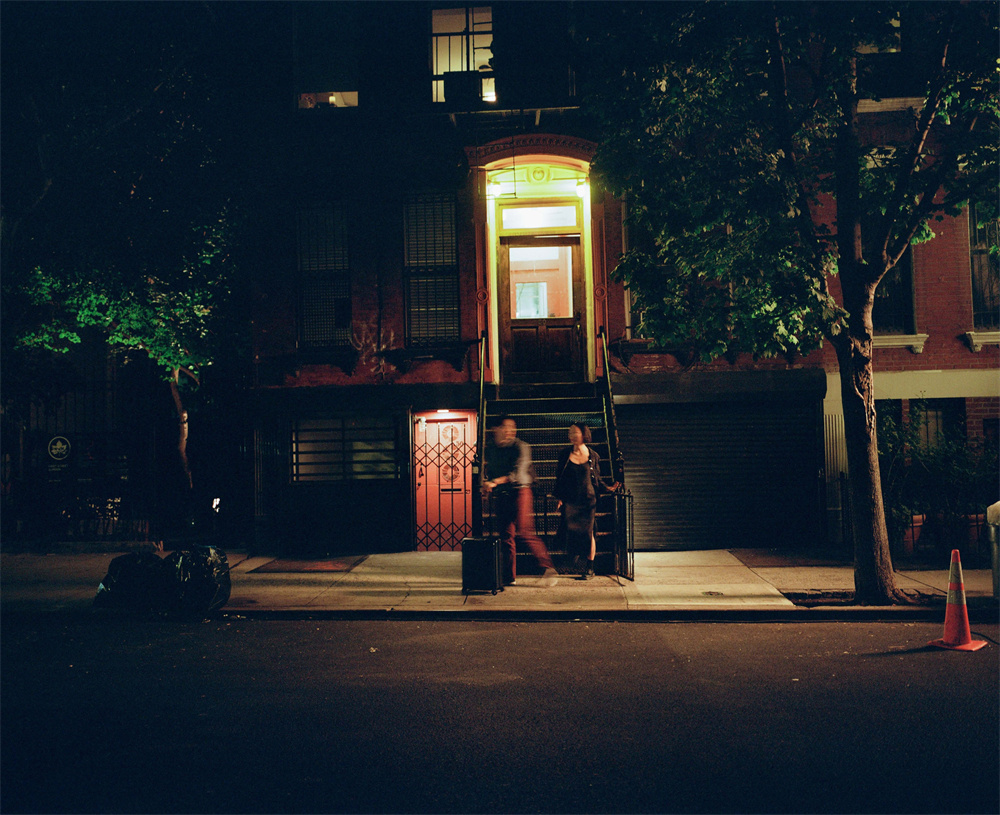
Stills from "My Past Life"


